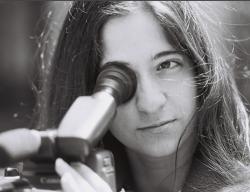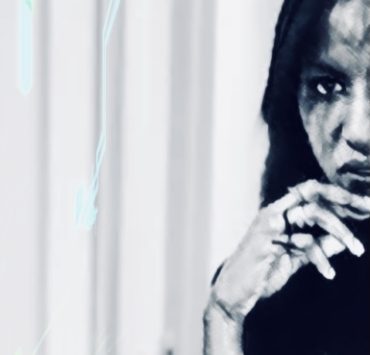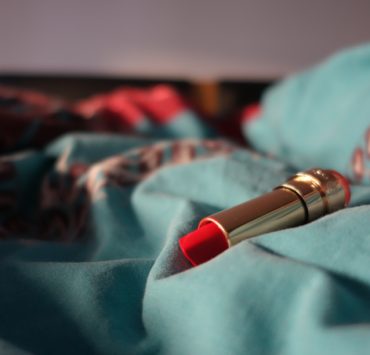
In English and the Spanish; translations by the author
Cuando Jorge se mudó al edificio Heidelberg en la calle 24 de Berlín, dos hombres marroquíes le tocaron a la puerta. Le preguntaron como estaba y le dieron la bienvenida con amplias sonrisas solidarias. Los marroquíes también le dijeron donde podía hacer compras de comida, beber una buena cerveza, y dejar la ropa para que la lavaran. Luego de ofrecerle toda la información esencial, se despidieron deseándole mucha suerte y señalándole el número del apartamento que compartían al fin del pasillo. Jorge no captó bien sus nombres.
El comportamiento marroquí le pareció muy raro a Jorge. En su país, españoles y marroquíes se detestaban hace más de 100 años. Antes de migrar a Alemania, Jorge había oído que un marroquí había apuñalado a una española sólo por llevar pantalones cortos y otro que agredió a un policía con un bastón. ¿Por qué vendrían a ayudarlo? Jorge cerró la puerta y prendió la televisión para ver un partido de fútbol. Se olvidó de los marroquíes por el resto de la noche.
Dos días después Jorge fue a sus clases obligatorias de alemán para emigrantes. Aunque era una imposición, lo hacía de buena gana. Para conseguir un trabajo en su campo de ingeniería tendría que hablar el alemán a la perfección. “Nun!”, dijo la maestra y le pidió a la clase que inventaran algunas oraciones con el verbo “parecer”. Jorge miró a los que estaban en la clase y se dio cuenta que era el único de ojos verdes. Levantó la mano, sintiéndose satisfecho: “con mis ojos verdes, parezco un alemán”.
La maestra y el joven que la asistía comenzaron a reírse. “Usted no parece un alemán! Que ocurrencias!”.
Cuando terminó la clase, Jorge salió lo antes posible del salón en dirección a su apartamento. La risa de la maestra se le había pegado como una costra sobre su piel. Quería bañarse. Al subir las escaleras vio a los dos marroquíes llegando del trabajo con su ropa salpicada de concreto. Jorge los saludó, y esta vez quiso ser un poco más amigable. Les mencionó un buen lugar para comer lentejas y tomar té. Hablaron como grandes amigos por unos minutos y quedaron en juntarse para comer ese viernes. Jorge se fijó que uno de los marroquíes también tenia los ojos verdes.
Ya en el pequeño baño de su apartamento, Jorge se miró al espejo por unos segundos y comenzó a reírse con carcajada nuevas. Vio que tenía los ojos poblados de preocupación y cargados del cansancio, típico de un emigrante. Vio que tenía la mirada líquida del mediterráneo, la melancolía de haber sido parte de una gran civilización heroica y luego, cenizas. Al fin entendió el extraño comportamiento de los africanos.
En Alemania, él era marroquí.
Jorge in Another Mirror
Soon after Jorge moved to the Heidelberg building on 24th Street in Berlin, two Moroccan men knocked on his door. They asked how he was doing and welcomed him with smiles of solidarity. The Moroccans also told Jorge where he could buy food, drink a good beer, and take his clothes to be washed. After offering all the essential information, they said goodbye wishing him luck with everything and pointing out the number of the apartment they shared at the end of the hallway. Jorge did not catch their names.
The Moroccans’ behavior did seem very strange to him. In his country, Spaniards and Moroccans had been in tension for centuries. Just before migrating to Germany, Jorge had read that a Moroccan stabbed a Spaniard for wearing shorts and that another had assaulted a policeman with a cane. Spanish mothers opposed Moroccan children being placed along their own in public schools. Why would they want to help him? Jorge closed the door and turned on the television to watch a soccer game. He forgot about the Moroccans for the rest of the night.
Two days later, Jorge went to his mandatory German-language class for immigrants. Although it was an imposition, Jorge did it willingly. To get a job in his field of study he would have to speak German perfectly. “Nun!,” said the teacher and then asked the class to come up with a few sentences with the verb “to look”. Jorge surveyed the room and realized he was the only one with green eyes. He raised his hand, feeling pleased with himself: “with my green eyes, I look like a German.”
The teacher and the young man who assisted her began to laugh. “You do not look like a German! What an idea!”
When the class ended, Jorge left the hall as soon as possible in the direction of his apartment. The teacher’s cackle had stuck on his thin skin like a scab. He wanted to bathe. As he climbed the stairs, Jorge saw the two Moroccans arriving from work, their clothes caked with concrete. Jorge greeted them, and this time he tried to be friendlier. He mentioned a pleasant place to have lentils and mint tea. They spoke as old friends for a few minutes and decided to have dinner that Friday. Jorge noticed now that one of the Moroccans also had green eyes.
Once in the apartment’s small bathroom, Jorge looked in the mirror for a few seconds and let out a new, unruly laugh. He saw that his brow’s furrows were soaked with worry and sunk by fatigue, an immigrant’s face. He saw that he carried himself with the insolence of having been part of what was once a vast empire, now a nest of anxiety. It was then he understood the strange behavior of his African neighbors.
In Germany, he was Moroccan.
Originally published in English in the Hong Kong Review

Frances Negrón-Muntaner is an award-winning filmmaker, writer, and scholar. She is the recipient of Ford, Truman, Scripps Howard, Rockefeller, and Pew fellowships as well as a Social Science Research Council and Andy Warhol Foundation grants. She is the author of Boricua Pop: Puerto Ricans and the Latinization of American Culture (winner, 2004 CHOICE Award), and the editor of several books, including Puerto Rican Jam: Rethinking Nationalism and Colonialism; None of the Above: Puerto Ricans in the Global Era, and Sovereign Acts. Among Negrón-Muntaner's films are AIDS in the Barrio, Brincando el charco: Portrait of a Puerto Rican, and War for Guam. She is currently completing various films, including on Valor y Cambio, her award-winning just economy public art installation of the same name, and writing an intellectual biography on Arthur Schomburg.







